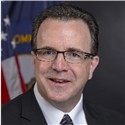
FRANKFORT – A panel of state lawmakers got an idea last week of the legislation some of Kentucky’s statewide constitutional officers will advocate for during the upcoming regular session.

“We have a couple of things percolating,” Kentucky Auditor of Public Accounts Mike Harmon said while testifying before the Interim Joint Committee on State Government. “I’ll let you peek under the hood, as it were, at a few things we are working on.”
He said the legislature could help Kentucky’s 120 counties by passing a bill modeled after an Ohio law that allows for an occasional, less-expensive audit of counties with a history of sound financial recordkeeping.
Another piece of suggested legislation from Harmon would close a loophole he said his office found that allows cities to receive state road funds even if they haven’t completed a yearly audit.

Kentucky State Treasurer Allison Ball said her No. 1 legislative priority is reform of Kentucky’s unclaimed property law. Part of her office’s duties is to handle unclaimed property such as uncashed payroll checks, inactive stocks, dividends and savings accounts.
Ball said her office returned $25 million in unclaimed property last year. She attributed the figure, in part, to going out and identifying entities such as school boards and nonprofits that normally wouldn’t think to check to see if they have unclaimed property.
“I’m a big believer in property rights and getting people’s property back to them,” Ball said. “It is good for the economy because it is their money and they now can do what they want to with it.”
Ball said additional legislation is needed, however, to deal with 21st-century creations such as gift cards and Bitcoins.
Kentucky Department of Agriculture General Counsel Joseph Bilby said his department will ask for legislation to clear up some regulatory issues that may not seem too important to the public but are of top concern for some in agricultural industries.
He said that while his department has been issuing certificates of free sale for years, it will request for that authority to be written into law. Some countries require the certificates to show that the products offered for entry into their country comply with U.S. laws and regulations.
Bilby said his department would like to exempt state agricultural producers from having to install expensive electronic logging devices on their trucks if they are making deliveries less than 150 miles away. The current exemption is 100 miles. Electronic logging devices are attached to commercial motor vehicles to ensure compliance with the federal law regulating how long a driver can be behind the wheel.
Co-chair Sen. Joe Bowen, R-Owensboro, said it was good to get a heads-up on the legislative needs of the constitutional offices.
“This is the last meeting of the interim session,” he said. “We have taken up some very timely topics and some topics I’m sure that will be addressed in the upcoming session of the General Assembly.”
The General Assembly’s 2018 session begins Jan. 2 and is scheduled to last through April 13.









